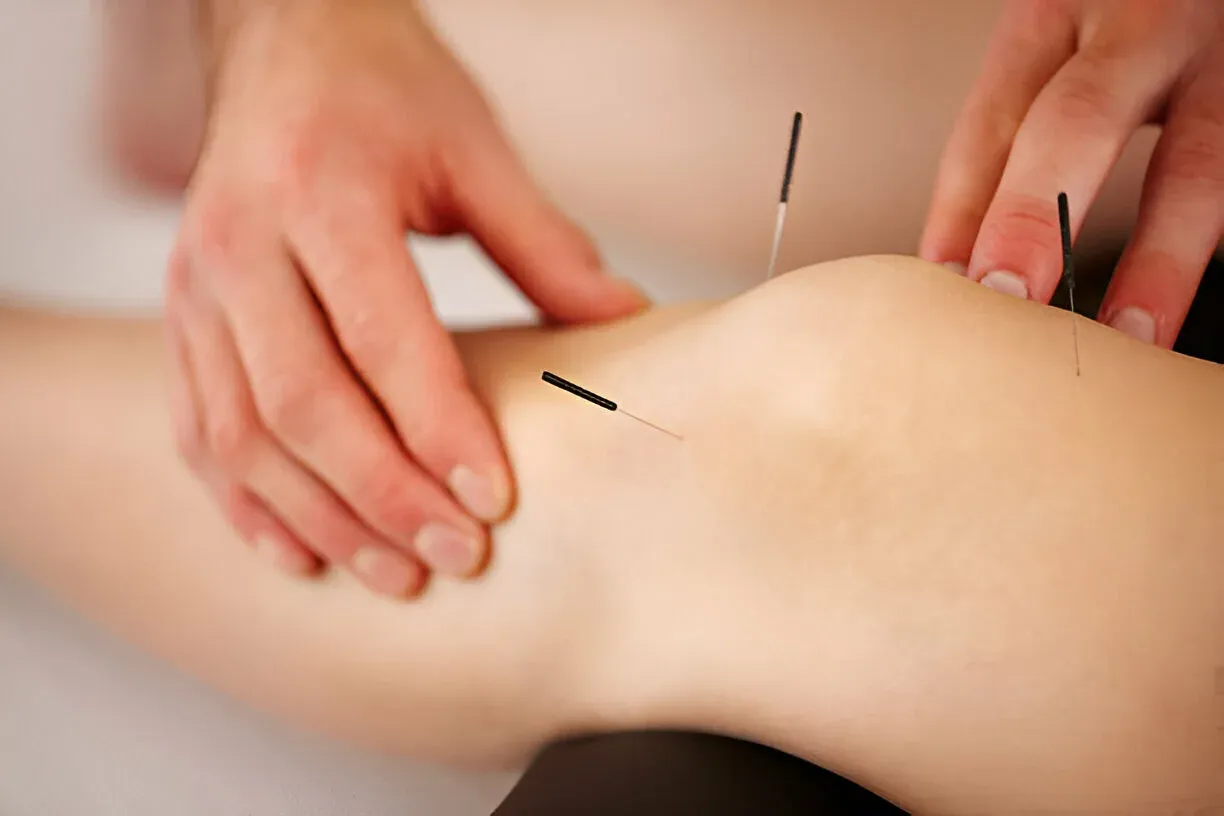This article is reviewed, corrected, and approved by: Julia Weiss CNP| RN | MPH
Acupuncture, an ancient therapeutic modality rooted in Chinese medicine, is highly sought after for its efficacy in alleviating pain and promoting holistic wellness. This revered practice entails the precise insertion of slender needles at strategic locations across the body, garnering widespread acclaim for its ability to optimize both physical and mental well-being. While most people experience positive effects, some encounter a surprising side effect: muscle soreness after treatment.
This article delves into the causes, management strategies, and reassurance for muscle soreness following acupuncture.
Why Does Muscle Soreness Occur After Acupuncture?
Several factors can contribute to muscle soreness after acupuncture:
- Needle Stimulation: The needles themselves can cause minor trauma to muscle fibers at the insertion sites. Usually, this is only a little, localized ache that goes away in one or two days.
- Trigger Point Release: Acupuncture commonly focuses on trigger points, muscular nodules capable of inducing discomfort and tension in various regions of the body. Releasing these trigger points can sometimes lead to temporary soreness in the treated area and surrounding muscles.
- Increased Blood Flow: Acupuncture is believed to stimulate blood flow, which can bring fresh nutrients and oxygen to muscles, potentially leading to a temporary feeling of achiness as the tissues adjust.
- Detoxification Response: Traditional Chinese medicine theory suggests acupuncture helps eliminate toxins from the body. Some practitioners believe this process can cause temporary discomfort, including muscle soreness.
It's Not Always Negative: Recognizing the Possible Advantages
While muscle soreness after acupuncture might be surprising, it's not necessarily a cause for concern. It could even be a sign of positivity in some situations:
- Breakthrough in Tightness: If you experience soreness after acupuncture in areas that were previously chronically tight, it could indicate the treatment is working to release tension and promote healing.
- Increased Range of Motion: Sometimes, post-acupuncture soreness can be accompanied by a newfound sense of ease and flexibility in the treated muscles. This suggests the treatment is addressing underlying issues and improving mobility.
How to Manage Muscle Soreness After Acupuncture
If you experience muscle soreness after acupuncture, here are some tips to manage it effectively:
- Rest: Give your body time to recover. It is advised that intense physical activity be avoided for a duration of 24 to 48 hours after the surgery.
- Heat Therapy: Utilize thermal therapy by employing a heated pad or indulging in a warm bath to alleviate muscular tension and promote relaxation.
- Gentle Stretching: Stretching gently can improve blood flow and reduce muscle tightness. However, avoid aggressive stretching that could worsen soreness.
- Hydration: Ensure adequate hydration by consuming ample amounts of water, thereby promoting optimal functioning of the body's innate healing mechanisms.
- Over-the-counter pain relievers: When discomfort is present, over-the-counter analgesics like acetaminophen or ibuprofen can be used to relieve it effectively.
Complementary Approaches for Enhanced Recovery
Several complementary approaches can work alongside acupuncture to minimize muscle soreness and promote recovery:
- Acupressure: Acupressure encompasses the therapeutic practice of strategically exerting targeted pressure on distinct bodily points, employing a needle-free approach. For the management of modest post-acupuncture discomfort, it might be a useful self-care strategy.
- Massage Therapy: A soothing massage has the ability to alleviate muscular tightness and discomfort following an acupuncture session. Discuss your acupuncture treatment with your massage therapist to ensure a complementary approach.
- Tai Chi or Yoga:The implementation of these subtle exercises is known to enhance flexibility, alleviate muscular tightness, and foster a sense of tranquility, all of which synergistically aid in expediting the recuperation process following acupuncture-induced soreness.
When to Be Concerned?
While some muscle soreness after acupuncture is normal, there are situations that warrant a conversation with your acupuncturist:
- Severe or persistent pain: If the soreness is intense, worsens over time, or doesn't resolve within a few days, consult your acupuncturist.
- Bruising or bleeding: Minor bruising or bleeding at the needle insertion sites is uncommon but can occur. Excessive bruising or bleeding necessitates a follow-up with your acupuncturist.
- Fever or chills: The presence of these symptoms may potentially signify an infection and necessitate urgent medical care.
Preventing Muscle Soreness: Communication is Key
Open communication with your acupuncturist is essential for minimizing the risk of muscle soreness. Here are some tips:
- Discuss your pain tolerance: Be upfront about your sensitivity to pain. Your acunpuncturist can adjust the needle insertion techniques accordingly.
- Mention any existing muscle tension: If you have chronic muscle tightness in specific areas, inform your acupuncturist. The treatment plan can be customized to mitigate any potential discomfort.
- Inquire about potential side effects: Don't hesitate to ask your acupuncturist about potential side effects, including muscle soreness.
Remember: A qualified acupuncturist will use sterile, disposable needles and follow strict hygiene protocols to minimize the risk of infection and other complications.
Muscle soreness after acupuncture is a relatively common occurrence. Understanding the reasons behind it and knowing how to manage it effectively can ease your concerns and allow you to experience the full benefits of acupuncture. Open communication with your acupuncturist is vital for a safe and positive experience.
Prior to commencing acupuncture, it is advisable to engage in a comprehensive consultation with your acupuncturist to address your specific requirements and the potential ramifications. This will facilitate embarking upon a transformative path towards enhanced overall wellness, while ensuring utmost comfort throughout the process.


